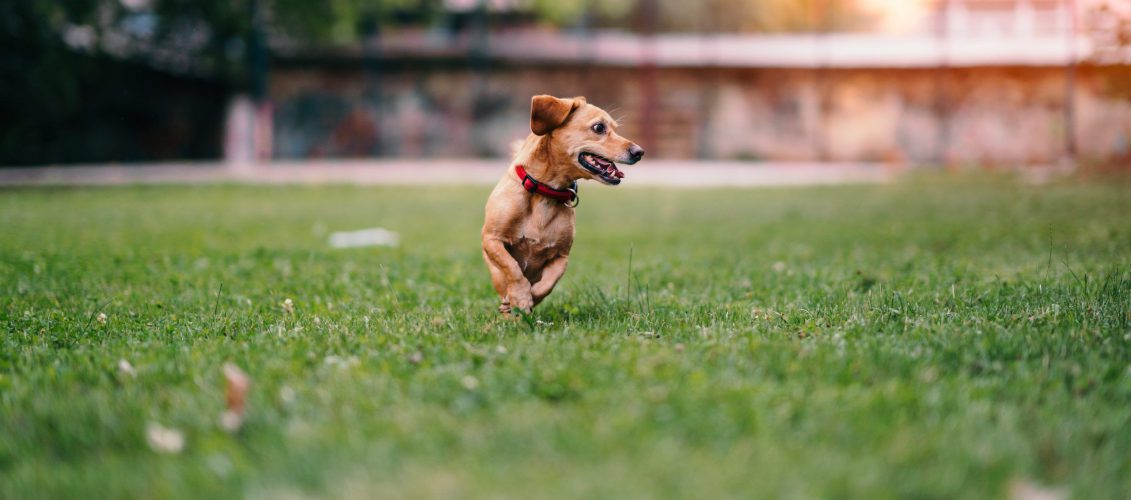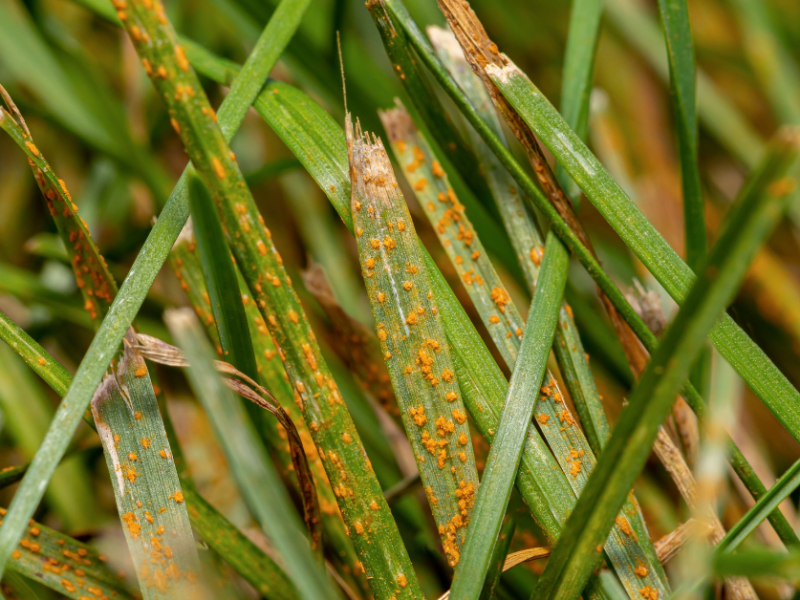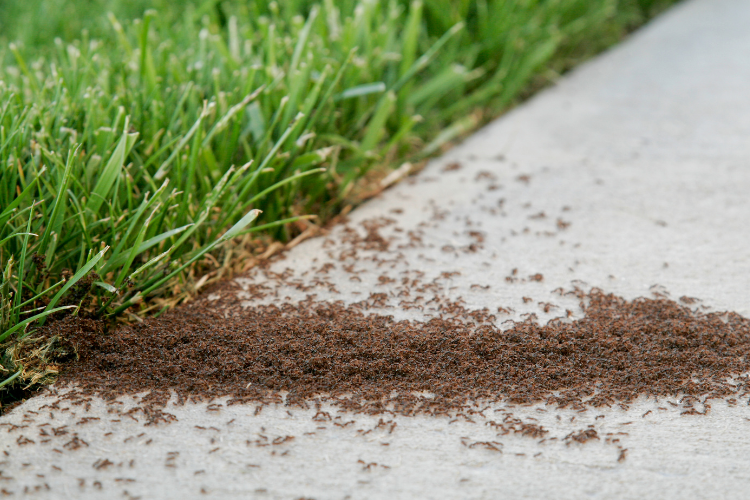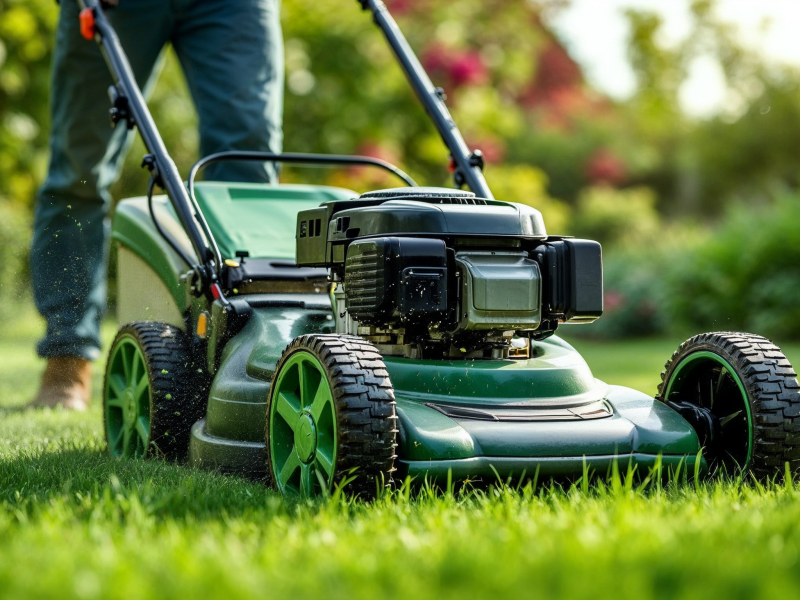People love pets. They’re some of the most excellent companions people can have and make living each day just a little bit better.
Pet Day (which was on 11th April) celebrates the joy that pets bring into people’s lives and encourages people to help reduce the number of animals in shelters. Bringing humans and animals together helps make the world a better place.
Here at Greensleeves, we too are lovers of pets and lawns, and we understand that your lawn is an extension of your home, especially for your furry friends. Some owners think having a lush, healthy lawn is impossible to achieve with their pets, but this isn’t true!
You can still have a lovely lawn if you’ve got a four-legged best friend around. Here are the key lawn care tips for keeping your lawn in great condition for you and your pets.
Dog owners
The high levels of nitrogen in dog urine can cause scorched patches of brown, dead grass to appear, especially if your furry friend has a favourite spot to go in.
- Taking the dog out first thing for a morning walk helps them get into a good routine and ensures the most concentrated wee of the day is not over your lovely grass.
- Encourage your dog to drink more water. Just like people, dogs need water… and more water means less nitrogen concentrated in his urine.
- This may not always be practical but keeping a bucket or watering can nearby and diluting the urine as soon as possible is a good solution.
- Some people are successful in training their dogs at a young age to urinate in a designated area of the lawn, so any damage is contained. That area can then be re-turfed occasionally.
- Have you thought about changing your dog’s diet? Perhaps your dog’s food is too high in protein? Find a high-quality dog food that has the right balance of protein and other nutrients he needs.
Some breeds are naturally more inclined to dig, but it’s often a sign of boredom or excess energy. Tips to help keep your pup entertained include:
- Avoid leaving them in the garden alone with no other distractions. Spend some time playing or training them in the garden or leave toys around that are more enticing than digging.
- Is your dog getting enough exercise? Dogs should be walked at least once a day. Some breeds are more active than others, but all dogs need mental and physical stimulation to avoid boredom.
- Digging can also be a sign of anxiety, so making sure your pet is well loved and looked after and has their own special ‘safe place’ can also help.
- Some dog owners have had success by making the digging area unappealing; sprinkling cayenne pepper is a commonly discussed tactic but remember this will need reapplying over time as the weather washes it away.
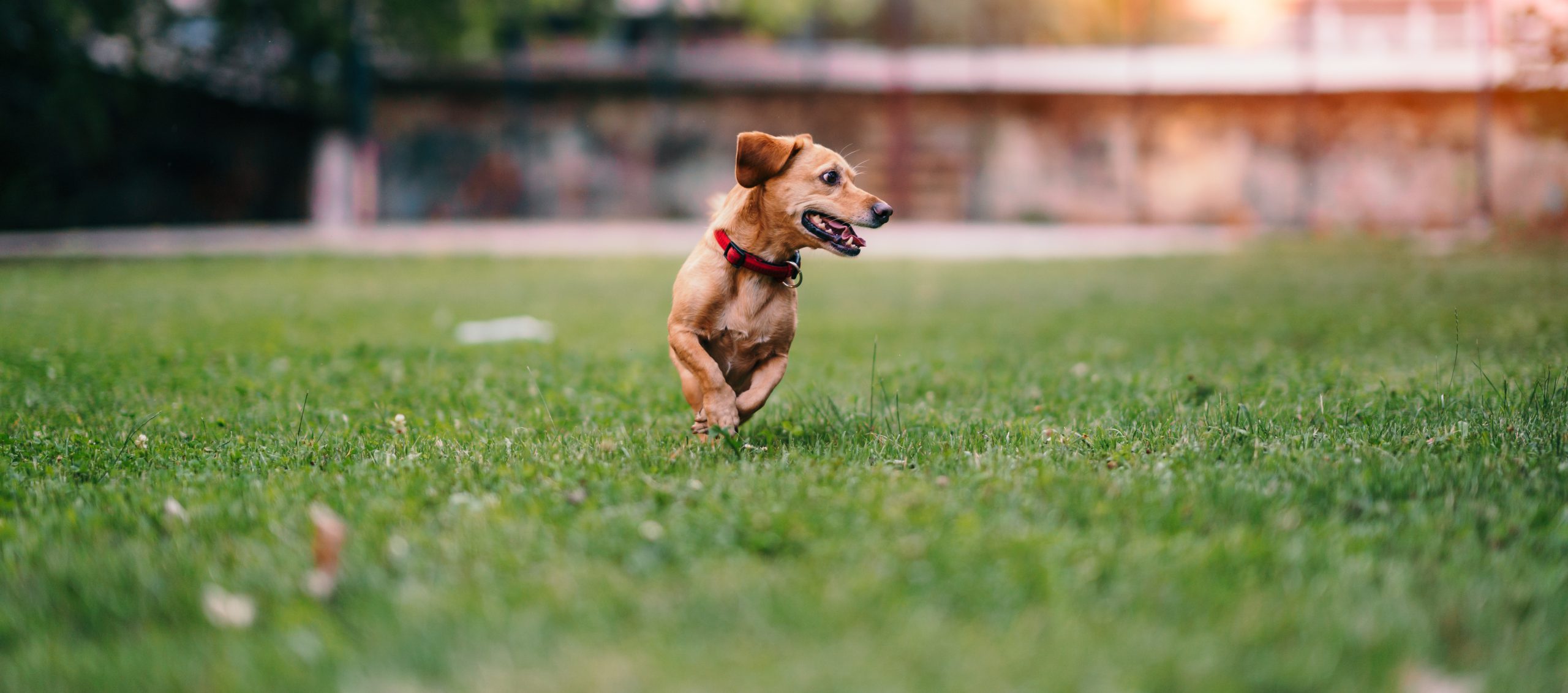
Cats and your lawn
On the whole, dogs cause more damage to a neighbour’s garden than cats. Our feline friends are more intent on using their neighbouring gardens as lavatories than “doing it on their own doorsteps”.
Although this can be incredibly frustrating for the owner of the abused garden, it’s reassuring to know that cats dig holes in which to deposit their waste, they tend to do this in the borders and therefore leave your lawn alone.
There are many things you can do to deter cats from your garden. Here are a few:
- Lay mulch in your flower beds. Cats hate to walk on bristly substances, so laying a mulch in your flower bed that contains something that will be rough on their paws and is an excellent cat repellent. You can try adding pinecones to the mulch or stone to the mix to help keep cats from using your flower bed as a litter box.
- Sprinkle Used Coffee Grounds in Your Garden. Not only do used coffee grounds work great as an organic fertiliser, but you can also use them to deter unwanted stray cats. The smell that emits from the used coffee grounds can act as a repellent, keeping cats from destroying your garden.
- Plant Lavender in your garden. Lavender plants look and smell great, but cats don’t seem to like them. Lavender and lovely fragrant plants will also help to repel gnats and mosquitoes. Plant these beautiful bushes along the perimeter of your yard to keep cats away.
- Plant prickly bushes throughout your garden. There are many prickly bushes that you can plant in your garden to deter cats and other small animals from using it as a litter box. Strategically placing these plants under bird feeders and under bushes will prevent cats from using these areas to stalk birds.
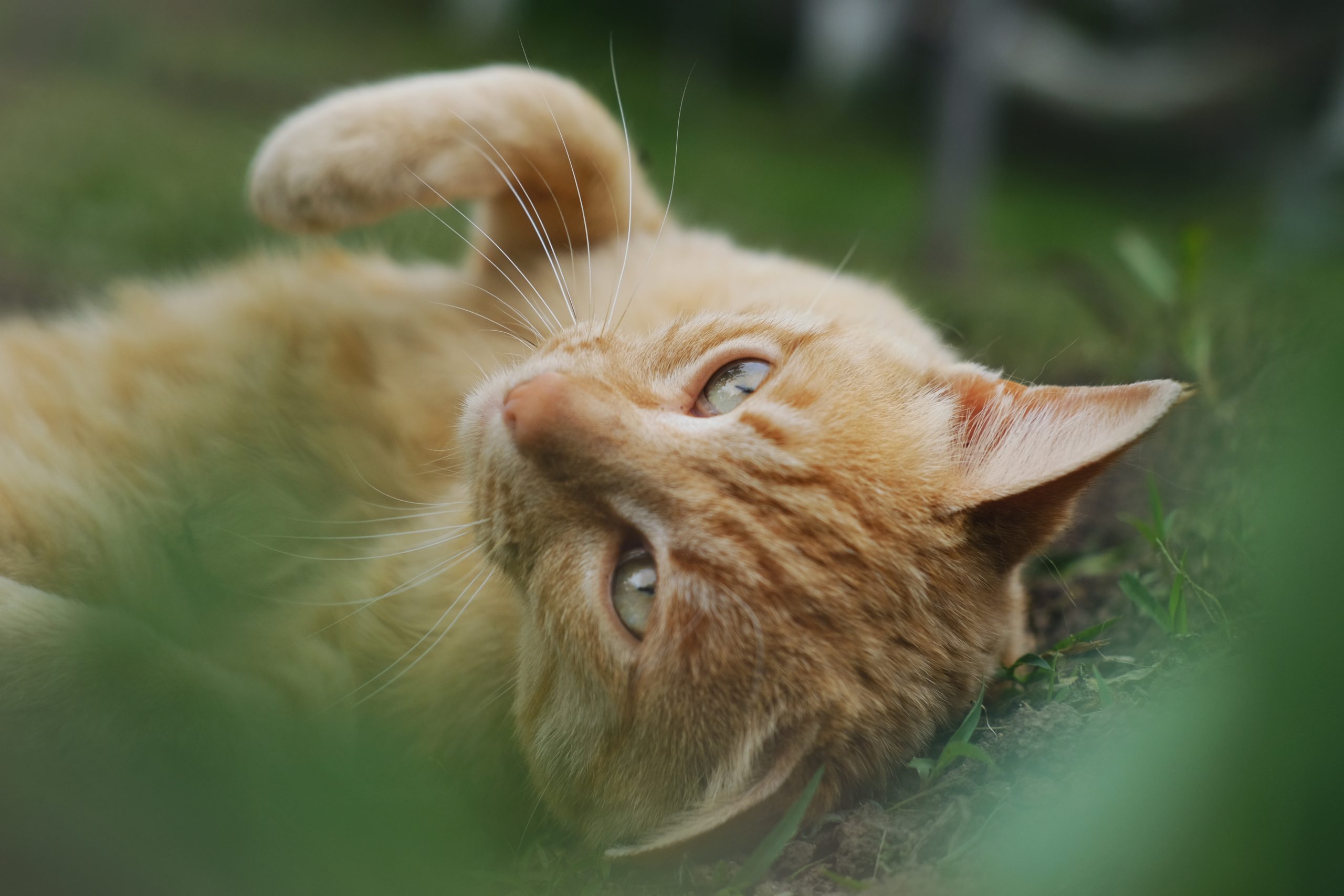
Grazing animals
These animals such as rabbits, tortoises, etc. tend to eat the grass, so before applying any products you need to read the label carefully. Some of our Greensleeves treatments require these pets to be kept off the lawn for at least 10 days. If you can make your local branch aware of the pets you own, they will be able to advise accordingly.
These pets are usually contained to one area in a hutch or pen. As a result, any damage to your lawn caused by their urine, droppings, munching or scratching will be confined to a small area which can be dealt with once you have moved the enclosure on to its next location.
We recommend periodically moving their home to different areas of the lawn before an area gets too damaged. Once you have moved your pets to a new area, we suggest watering down where they were previously kept. This will dilute the concentration of urine.
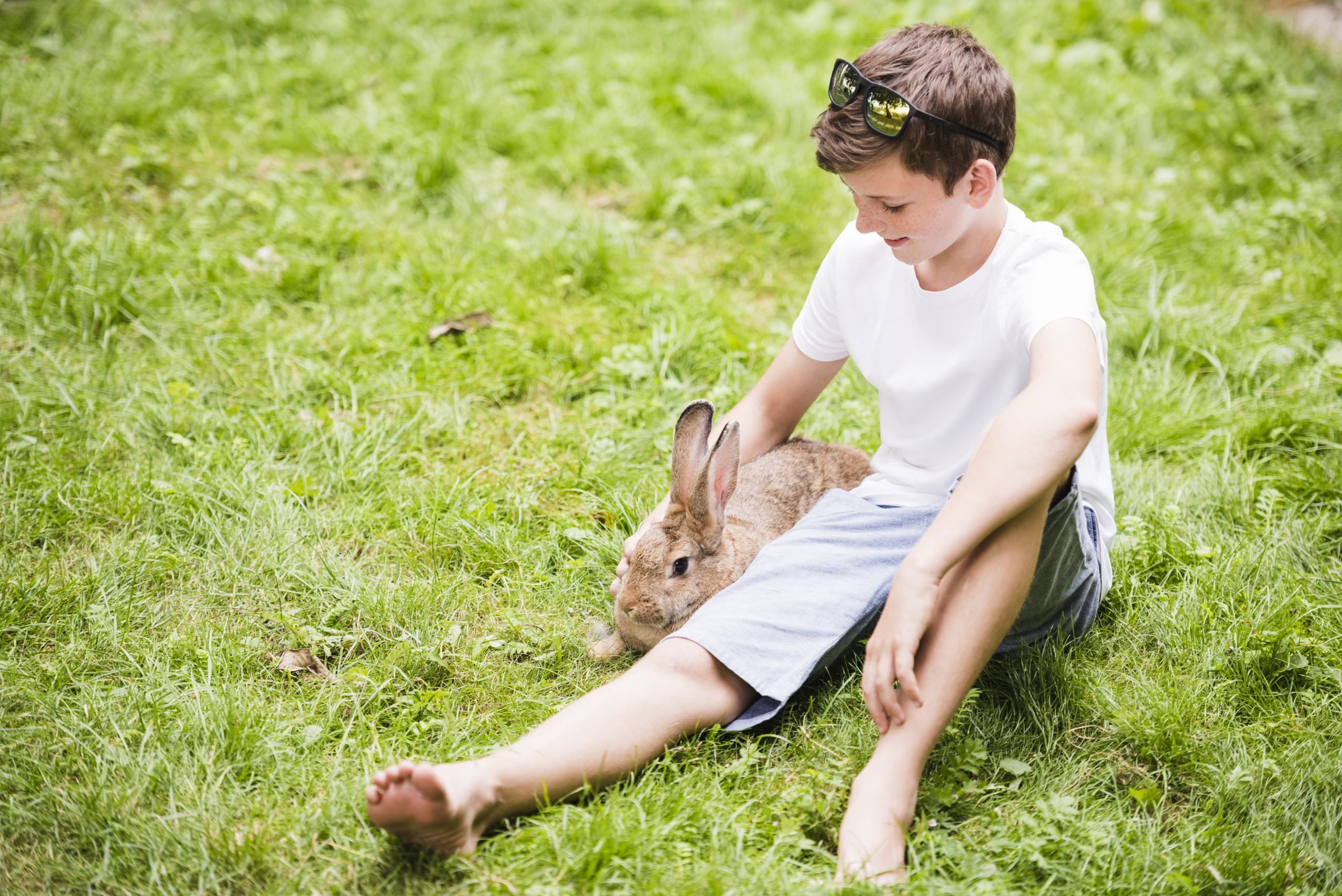
Repairing your lawn
If dead patches start to appear, try to follow the steps below which should help with the recovery process:
- Use a rake to remove the dead area
- Next is to rough up the patch and it may be an idea to add some top dressing.
- Cover the affected area in lawn seed.
- Simply ensure you water the new patch don’t allow it to dry out until seed germination has occurred.
Don’t let your pets put you off having a beautiful lush healthy green lawn. It just requires a little more effort, and our Lawn Care Experts on hand to help. Our lawn treatments are safe for your pets but please do get in touch if you have any questions.
Please feel free to contact our helpful team either by calling 0808 100 1413 or completing the form on the contact us page and we will be happy to assist.

